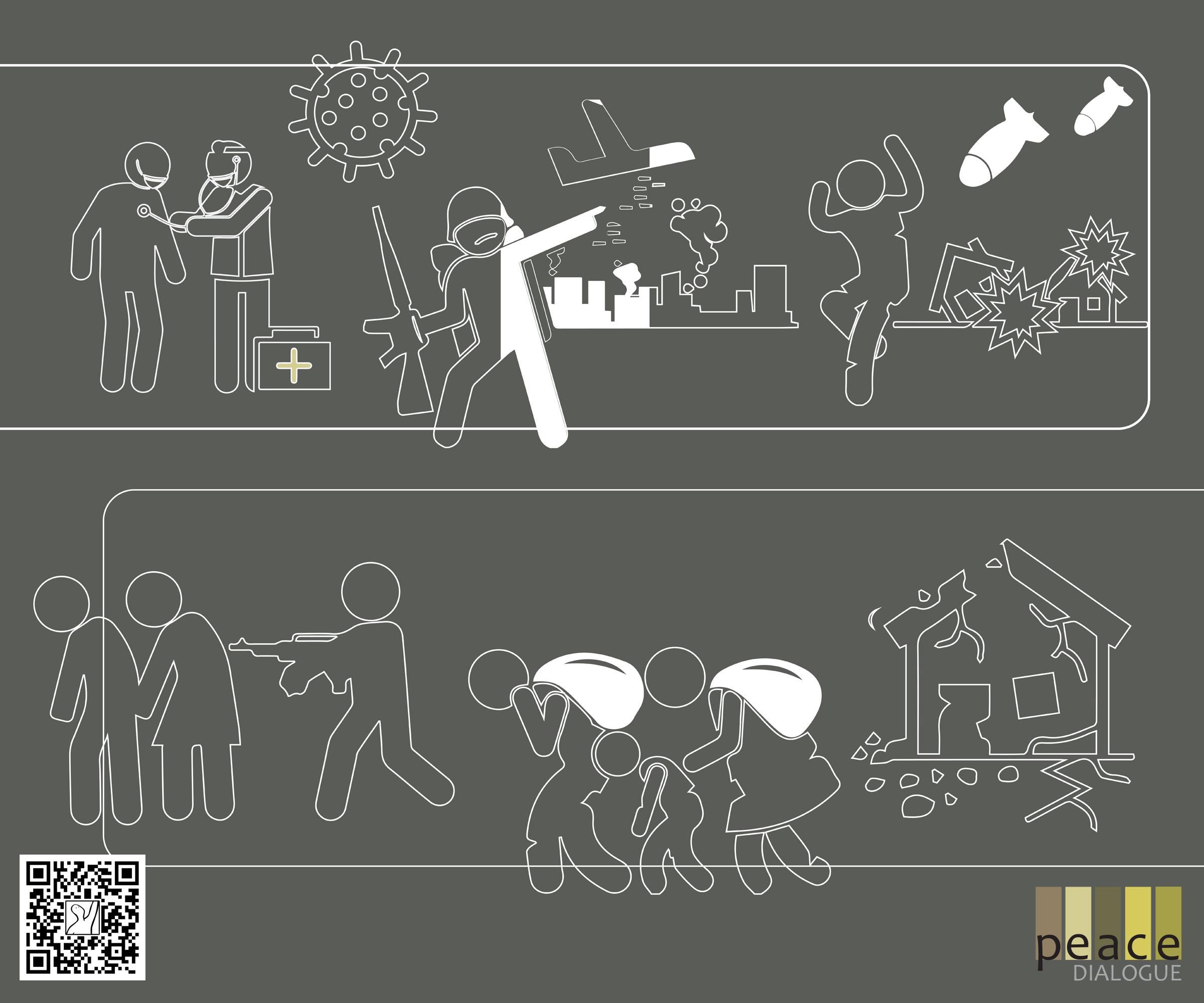
© 2021. ILLUSTRATION BY PEACE DIALOGUE NGO
OPENING REMARKS: LEARNING TO ADAPT, IMPROVISE, OVERCOME, RETHINK & REBUILD…
…We are now working hard to develop new concepts to help us foster human rights protection, advocate for victims of the conflict, and rebuild mutual trust and dialogue between citizens of the societies that have been divided by war…
EDGAR KHACHATRYAN, PD, PRESIDENT
Dear Partners and Friends, Beneficiaries and Supporters, 2020 has turned out to be the most difficult year yet in the twelve-year history of our organization.
Not long after the year started, the coronavirus pandemic (COVID-19) burst onto the international scene, and in the months since, the virus has dramatically remoulded the way we, our partners, and all of us see the world. As it upended established patterns, and forced lasting changes on the way of life and activities of peoples the world over, the pandemic also created daunting obstacles to the realization of the ambitious plans and projects that we at Peace Dialogue had envisioned so optimistically for 2020.
While humanity was absorbed with adapting to this menace, and as many countries were struggling to develop new strategies to overcome the social, political and economic impacts of the pandemic, full-scale war of an intensity not seen since 1994 erupted again in the South Caucasus in September. Forty-four days of bloody fighting between Azerbaijani and Armenian forces over the breakaway territory of Nagorno-Karabakh and adjoining areas have left a toll of at least 143 civilians dead (including children), as well as thousands of soldiers killed or injured, and hundreds more soldiers reported missing or captured. Half of Nagorno-Karabakh’s population, about 75,000 people, have fled their homes. The Russia-brokered ceasefire that was signed November 10th leaves many open questions, especially as regards protection for, and assistance to, displaced persons, persons remaining in the territories that have been ceded to Azerbaijan, and persons remaining in, or returning to, Nagorno-Karabakh. Of these, the most vulnerable segment from among the persons displaced by the recent fighting are the Armenians who are unable to return to their homes in the Nagorno-Karabakh area, because these homes were on the territory that was surrendered. At the moment, these people have no status, and there are no provisions for their future.
The above challenges clearly expose the deficiencies of existing mechanisms for human rights protection, negotiation and conflict mediation in the international arena. The hopes that many citizens in the conflict zone had for a decisive intervention by the international community were not realized, and as a result, these international institutions have been almost completely discredited in the eyes of the populations of the Nagorno-Karabakh area.
The painstaking efforts by civil society actors to build networks and create alternative narratives, initiatives years in the making, have been badly compromised in a short space of time. The recent war undermined the image of human rights and peacebuilding organizations, and cast doubts on the efficiency and potential of solving conflict by peaceful means.
These circumstances have formed the inescapable backdrop to all of Peace Dialogue’s activities over the last year. To confront these challenges, we initially focused our energies on trying to adapt to the changes forced on us by the Coronavirus pandemic as we attempted to improvise and invent creative ways to continue our strategic activities. At the end of 2020, the post-war reality has forced us to dedicate our efforts to dealing with the consequences of the war, and the challenges to democracy that have arisen dramatically in this post-war context. As we consider our past mistakes and shortcomings, we are now working hard to develop new concepts to help us foster human rights protection, advocate for victims of the conflict, and rebuild mutual trust and dialogue between citizens of the societies that have been divided by war.
We remain hopeful that in the near future, with your support and cooperation, we will be able to bring at least some small but very necessary changes to the lives of conflict-affected communities, and also that we will help recreate an atmosphere of safety and security, and foster a commitment among our citizens towards peace, democracy and human rights.
See full publication under the link below: PEACE DIALOGUE: ANNUAL REVIEW | 2019 – 2020 (pdf, 1.8 Mb)




